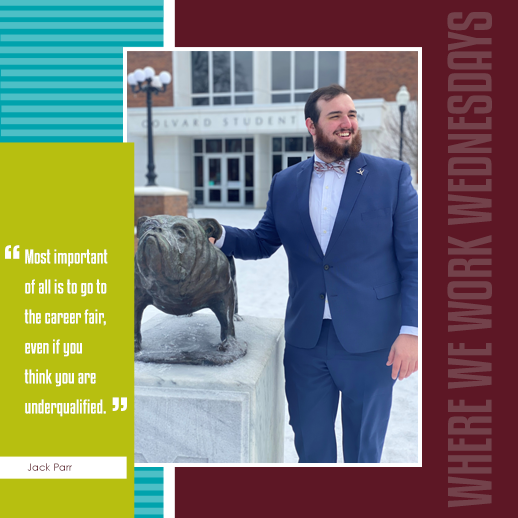Where We Work: Jack Parr
June 23, 2021
Please meet Jack Parr, a senior Aerospace Engineering major with a concentration in Astronautics and a minor in Mathematics. This summer, Jack began his first Co-op rotation with Gulfstream Aerospace. Check out his perspective as a newbie to the program.
 What are your expectations of your Co-op experience?
What are your expectations of your Co-op experience?
I am expecting to learn a lot more about industry and the practices they hold. I am told that Gulfstream does a lot of projects with their Co-ops that set them up very well for a career in engineering so that is what I hope to learn. I also expect to make great friendships and connections while working there.
How was the process of obtaining a Co-op for you?
Obtaining a Co-op was a unique experience. I first talked to them at the career fair my first semester of my sophomore year before COVID was an issue. I was understandably young, and Co-ops are not super common for aerospace majors. I interviewed with them twice once we went online and was super excited to get the Co-op. The change to online interviews was probably the biggest obstacle for me because suddenly things got more competitive for the online sphere since all you had to do to interview was join a Webex call rather than get dressed up and go to the sessions in person.
What advice would you give students who may be interested in participating in a Co-op?
If you are a student interested in a Co-op the benefits are great but make sure your rotations align with your schedule. For aerospace engineering the classes you take are only offered once per semester, so make sure you do not get set too far back. Make sure to be persistent about connecting with people from the career fair, they will likely remember you between years, so a good impression is super important! Most important of all is to go to the career fair, even if you think you are under-qualified. It gives you great experience interacting with people and lets them know you are serious about your future. Many will recognize you when you become qualified in the future.
See more at the Where We Work archives.
